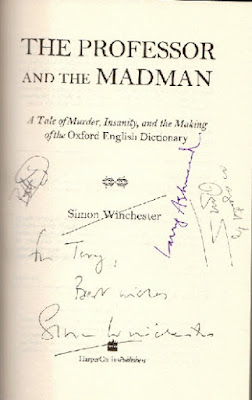My life as a writer is filled
with many details. These large and small details don’t seem important in some
regards but they add up to making a difference.
Create It To Open When
Clicked
Whenever I add a website link to a blog post, I make sure when someone clicks it, the reader opens a new
window and doesn’t click away from the page. This detail is important to keep
people on your website and not moving away from where you want them to be
reading. On a monthly basis, I write for a website. When the post launched recently, I checked the various links to make sure this advanced feature was initiated. It took a few minutes but I carefully reviewed each one and in many
cases added this feature. It’s just one example of where the tech details
matter.
Tag Others on
Facebook
When I post on Facebook, I will
often tag others. Why make this additional effort? When you tag someone,
Facebook adds your post to their news feed. It is a simple way to get more
readers. I’ve seen some people make excessive use of tags. They will tag me when
I'm not involved at all in their article so I will remove the tag. Use it wisely
and in a limited fashion but do use it.
Use Hashtags with Your
Social Posts
For each of my social media
posts, I include two hashtags. You can certainly include more than two but the
general standard is two. Many people search by hashtags and use it to read
social media posts. I include this tool to get some additional
readers.
Shorten Your Links in
Posts
Many times I’ve seen long website
links which are too long and broken. When someone clicks a broken link, they do not reach the intended destination. What is an easy way to prevent this issue
from happening to you? Use an online tool to shorten the link. There are a
number of these tools. I personally use Bitly but there are many others. It takes some extra time to
use it but it is worth it to make sure your material gets read.
Make Your Content Easy To Pass To
Others
You've invested the time and
energy into writing some content. Make sure you create an easy means for the
reader to pass this content to others. There are many technical tools in this
area which are simple to set up and use. I use ClickToTweet. I add this tool to
the end of each of my blog posts. It takes effort to add this tool to my post.
From my own social media, I can see others use my ClickToTweet to pass my
articles on to others.
Why Do These Boring
Actions?
The reality is my time is limited
and valuable just like your time. I want to end this article with some motivation about why
these technical details are important. These boring actions help you reach more
readers and increase the effectiveness of your taking the time to post it in the
first place. Sometimes I want to forget it and not do it—but then I do it
because it reaches more readers. Figure out your own motivation to keep going
but that's the reason I continue doing it. As I handle these various technical
details, I know that it will help the effectiveness of my posts and help me
reach more readers. Reaching readers takes priority over boring for me every
time.
These technical details are a few
of the ones I use on a regular basis. Which ones do you use? Let me know in the
comments below.
My Writing On Other
Websites
On a regular basis, I encourage
you to write for other websites. Here’s several recent articles that I’ve
published on other websites.
Labels: boring, clickable link, motivation, publishing, readers, technical details, Terry Whalin, The Writing Life, Why The Tech Details Matter



































